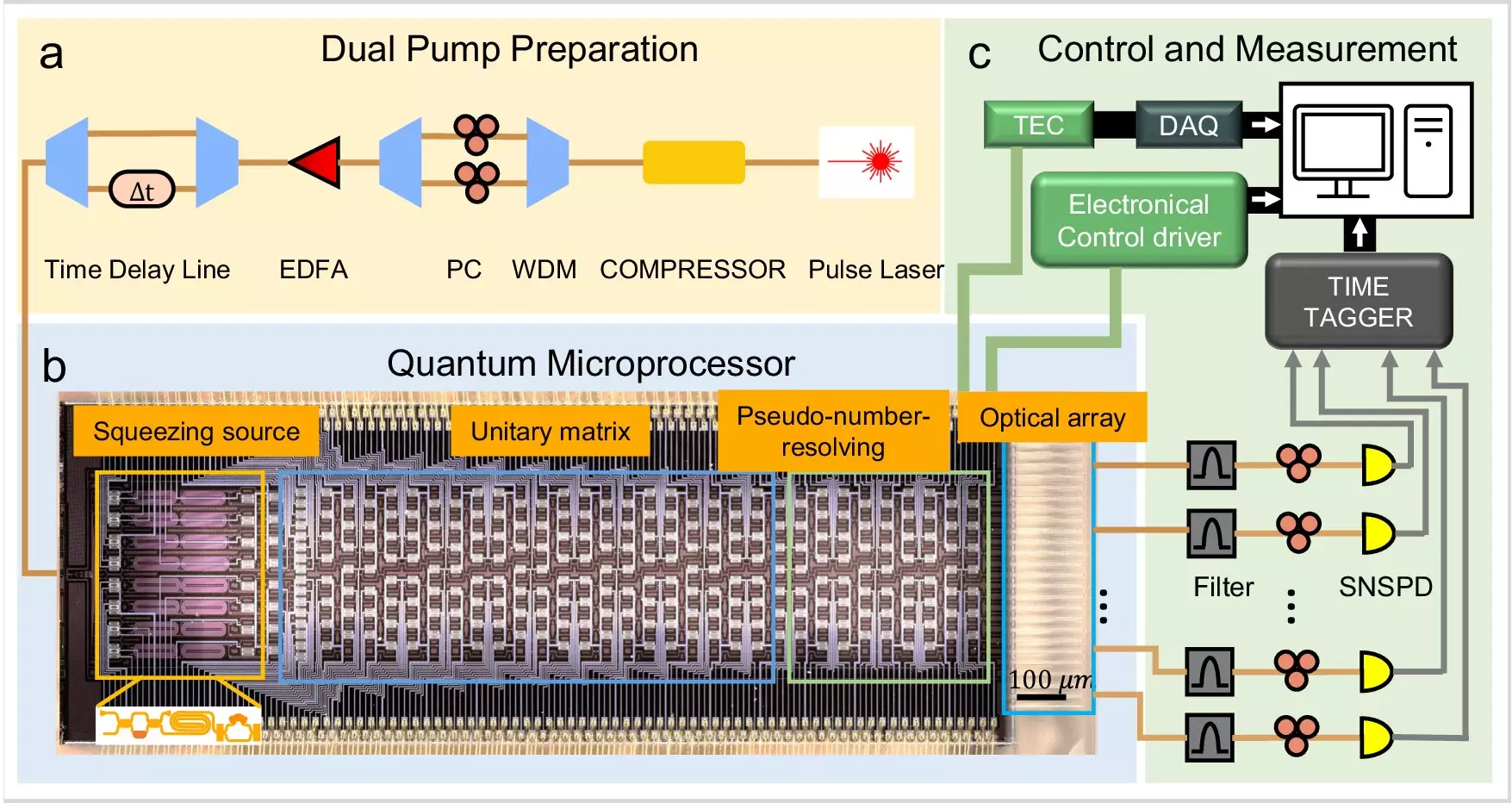Quantum simulation has been a game-changer in the scientific world, allowing researchers to delve into complex systems that were previously impossible to study using classical computers. This innovative approach has opened up new avenues in various fields such as financial modeling, cybersecurity, pharmaceutical discoveries, AI, and machine learning. One area where quantum simulation has shown immense promise is in exploring molecular vibronic spectra to understand molecular properties better. However, the computational complexity of this task has posed a significant challenge for traditional supercomputers.
Researchers at The Hong Kong Polytechnic University (PolyU) have made a groundbreaking advancement in the field of quantum simulation by developing a quantum microprocessor chip capable of simulating molecular spectroscopy for large and complex molecules. This achievement, published in Nature Communications under the title “Large-scale photonic network with squeezed vacuum states for molecular vibronic spectroscopy,” represents a significant milestone in the realm of quantum technology.
To accurately capture quantum effects in molecular spectroscopy simulation, researchers must take into account the principles of quantum superposition and entanglement. These phenomena play a crucial role in developing simulations that accurately represent the behavior of molecules at a quantum level. Traditional computing methods struggle to model these quantum effects efficiently, highlighting the need for advanced quantum technologies like the one developed at PolyU.
Led by Professor Liu Ai-Qun and Dr. Zhu Hui Hui, the research team at PolyU has successfully fabricated a 16-qubit quantum microprocessor chip integrated into a single unit. This quantum microprocessor chip has been designed to handle complex quantum tasks with improved speed and accuracy, making it a valuable tool for solving intricate molecular structures and optimizing molecular reactions beyond the capabilities of classical computers.
The integration of quantum microprocessor chips opens up new possibilities for practical applications in various scientific fields such as material science, chemistry, and condensed matter physics. These chips serve as a promising hardware platform for quantum information processing and hold the potential for achieving quantum speed-ups in quantum chemistry applications. The research findings by the PolyU team lay the groundwork for future advancements in quantum technology with significant real-world implications.
Professor Liu emphasized the importance of scaling up the quantum microprocessor chip to tackle more complex applications that could benefit society and industry. The team’s successful simulation of molecular spectroscopy using a quantum computing microprocessor marks a significant milestone in quantum technology’s evolution and its potential applications in quantum computing. This breakthrough highlights the transformative power of quantum simulation in advancing scientific endeavors and unlocking new possibilities for quantum technologies.


Leave a Reply
You must be logged in to post a comment.